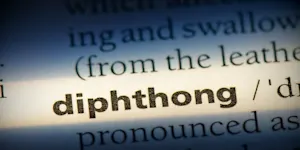What Makes This Word Tick
"Feckless" has a charmingly old-fashioned ring to it, describing someone or something that is lacking in efficiency or vitality. It's often used to highlight an absence of initiative or responsibility, and let's face it, we all know someone who fits the bill perfectly.
If Feckless Were a Person…
Imagine the lovable yet absent-minded relative who’s forever losing their keys or missing appointments. They might have the best intentions, but somehow, things just always seem to go awry in their hands.
How This Word Has Changed Over Time
Originally, "feckless" evolved from the Scottish word "feck," which means effect or value. Over time, it came to describe someone of little worth or effectiveness—the kind of transformation that would make any linguist’s heart flutter.
Old Sayings and Proverbs That Use Feckless
While there aren’t any classic proverbs that feature "feckless," it certainly would have felt right at home amidst advice on avoiding idleness or irresponsibility. Picture an old-timer advising, “Better to be earnest than feckless!”
Surprising Facts About Feckless
Despite its negative connotation, "feckless" is sometimes affectionately used to describe endearing and whimsical ineptitude. Also, it’s a word that can give your vocabulary a nice touch of Scottish heritage!
Out and About With This Word
Think of "feckless" when you're at the grocery store and see someone picking items randomly with no list or plan, or when it’s used by critics to describe a lack of leadership or direction in a business or political setting.
Pop Culture Moments Where Feckless Was Used
In recent pop culture, "feckless" made headlines when it was used controversially in political discourse, showing up in everything from newspapers to comedy sketches. It’s one of those words that instantly jazzes up political commentary.
The Word in Literature
"Feckless" fits splendidly into the pages of classic British novels, where characters often navigate social mores and family responsibilities—or lack thereof! You might encounter it in the works of authors like P.G. Wodehouse or Evelyn Waugh.
Moments in History with Feckless
Though it might not have been used in grand speeches, during turbulent historical moments, such as the waning days of an empire, one might have described the prevailing leadership as feckless or ineffective.
This Word Around the World
In different languages, the concept of "feckless" might translate to similar meanings revolving around ineptitude or inefficiency. In French, you might use "inefficace," while in German, "nutzlos" might capture a similar spirit.
Where Does It Come From?
Tracing back to the late 16th century, "feckless" derives from the Scots "feck," meaning effect or vigor, combined with "-less." It was initially used to suggest something ineffective, quite the opposite of its root.
How People Misuse This Word
A common mistake with "feckless" is using it interchangeably with "reckless." While both describe a certain lack of prudence, "feckless" is more about ineffectiveness rather than daring or risk-taking.
Words It’s Often Confused With
Reckless: Suggests a lack of care but with more danger or disregard.
Inept: Indicates clumsiness or incompetence, often in skill.
Useless: Implies no practical use, though not necessarily without effort.
Additional Synonyms and Antonyms
Synonyms for "feckless" include ineffectual, aimless, and ineffective. On the other hand, antonyms like competent, effective, or purposeful represent the exact qualities a feckless person or action lacks.
Want to Try It Out in a Sentence?
"Despite his feckless attempts at gardening, Tom managed to grow a rather impressive collection of weeds."
















